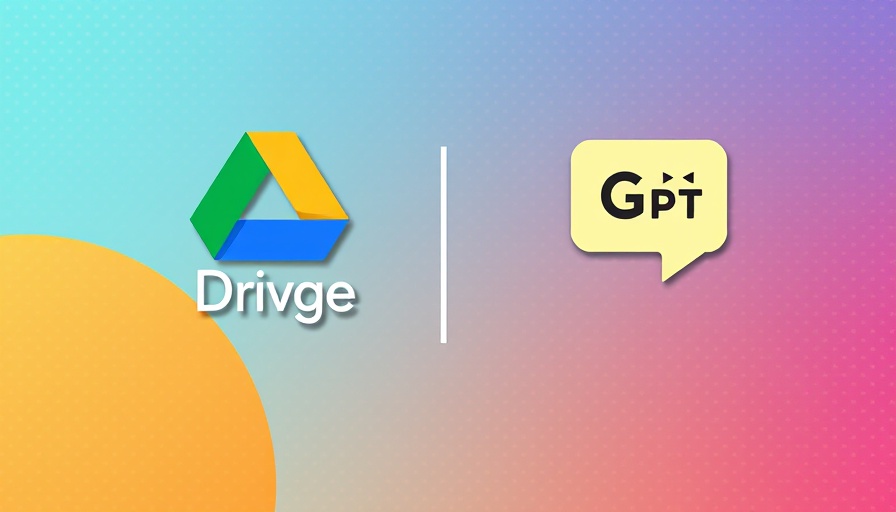
How ChatGPT Connectors Could Transform File Management on Google Drive
As the integration of technology into our daily lives progresses, OpenAI is stepping up its game with the development of 'Connectors' for ChatGPT that will soon allow access to Google Drive without the hassle of file uploads. This innovative feature promises to revolutionize how users interact with their stored data and streamline workflows for teams.
Understanding the New Connectors: A Step Towards Seamless Integration
The idea behind the Connectors initiative is simple yet powerful: it eliminates the need for lengthy uploads to analyze files stored in Google Drive directly. Users can query ChatGPT about their documents without the cumbersome step of first importing them. This means that prompts such as "summarize the report I shared yesterday" could become effortless.
OpenAI plans to initially roll out the Connectors for Team subscribers, focusing on Google Drive and Slack, indicating a business-oriented approach that highlights collaboration and internal communication.
Enhancing Productivity: Why This Integration Matters
As technology enthusiasts have recognized, the ability to connect ChatGPT with Google Drive represents a significant shift. This integration could save countless hours spent searching for documents and sifting through information. According to a recent article from Tom's Guide, linking Google Drive with ChatGPT simplifies file management and boosts productivity, setting the stage for better immediate access to critical documents.
Imagine having ChatGPT automatically summarize documents prior to a meeting or extracting data from spreadsheets for quick analysis. Once developed, this tool could enhance not only individual productivity but also team collaboration and decision-making.
Privacy Concerns and User Control: Striking a Balance
One important aspect of this feature is its emphasis on respecting user privacy. OpenAI reassures users that "integration permissions will be fully respected" and that it will not use synced data for training models. For many, the idea of AI accessing personal or internal documents raises flags about data security and privacy. However, the promise of continuous updates to permissions and access controls seem to mitigate these concerns.
As one explores this feature's potential, it's essential to weigh the benefits against possible risks, especially concerning sensitive information. The effectiveness of the Connectors can only be measured and trusted if substantial security measures are in place.
Future Predictions: What Lies Ahead for ChatGPT Users
The future of ChatGPT's integration with file storage platforms like Google Drive appears bright. As mentioned in our sources, initial tests will lay the groundwork for expanding Connectors to other platforms such as Microsoft SharePoint and Box.
This could harbor significant advantages, transforming how we collaborate and interact with technology. Adapting to new applications could lead to innovative methods of information retrieval and management—think intelligent document assistants that adapt to how users typically request information. Organizations that embrace these technologies can expect enhanced operational efficiency.
The Bigger Picture: AI's Role in Document Management
As we navigate through the evolving landscape of AI integration into everyday tasks, the introduction of features like ChatGPT Connectors underscores a pivotal moment in automation. These tools not only streamline individual processes but also invite us to rethink how workflows are structured. By making data retrieval and management more intuitive, they enable workforce transformation and achievement of more strategic capabilities.
In closing, as AI enthusiasts continue to explore these advancements, the potential of tools like ChatGPT Connectors is only just beginning to unfold. Keeping abreast of emerging technologies will ensure users can leverage their features effectively—improving productivity, collaboration, and ultimately, work satisfaction.
 Add Row
Add Row  Add
Add 




 Add Row
Add Row  Add
Add 

Write A Comment